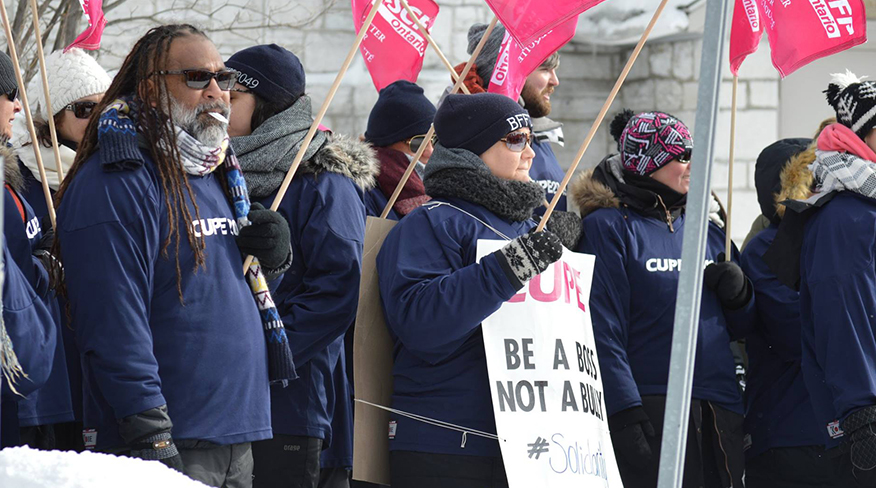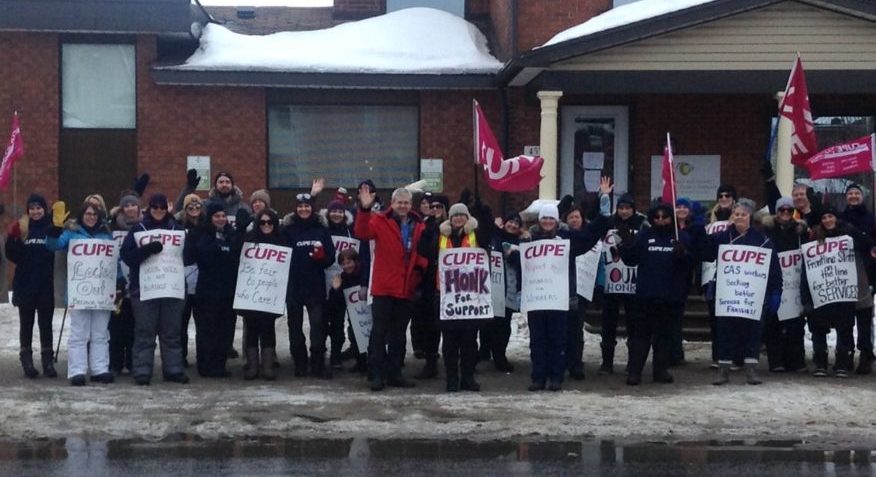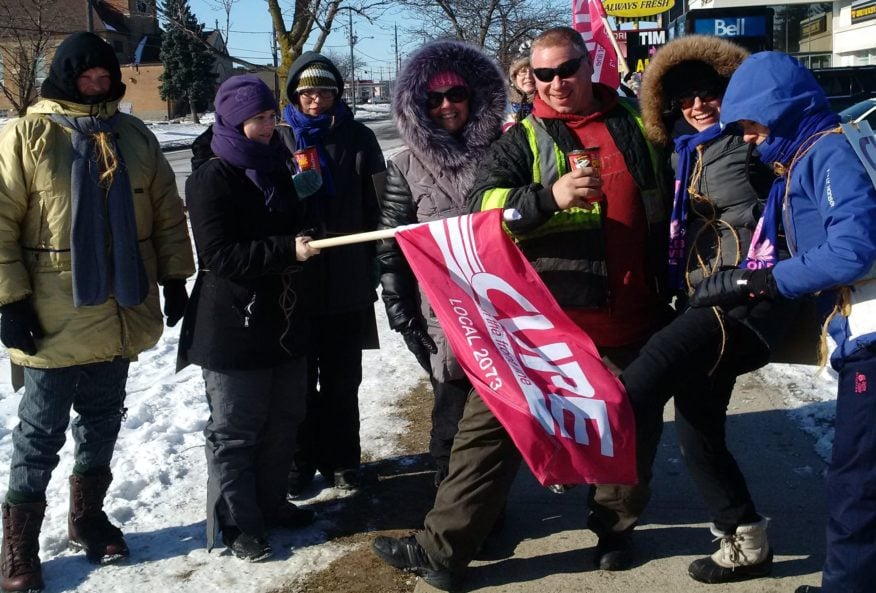
The full text of this letter is below.
An Open Letter to the Peel District School Board Community
In recent weeks, Canadians have been rightly shocked by media reports of Islamophobia and hate being directed against members of the Peel District School Board (PDSB) community.
Unfortunately, the widely publicized, Islamophobic rhetoric and actions of some in the public galleries at the Peel District School Board’s March 22nd meeting is just one in a series of hate-filled incidents experienced by our school community over the last few months.
From vile attacks on elected school board trustees in public forums and a barrage of ugly comments on social media to the direct targeting of our students by ‘You Tube bounty’, our community is experiencing behavior that is not only deplorable but dangerous.
As education workers, we expect our employer, the Peel District School Board, to ensure our rights under the Ontario Human Rights Code and the Canadian Charter of Rights and Freedom are respected. This is what we want for ourselves, we desire for all others, and especially for our students.
As education workers and members of CUPE, we stand in full support of the PDSB’s effort to ensure students’ human rights are respected in our schools.
We also know that the hateful rhetoric and actions we’re seeing have nothing to do with the steps taken by the PDSB to ensure students’ rights.
They are meant to intimidate and spread hate.
Those who seek to explain away this behaviour as some normal part of a debate on accommodation are at best disingenuous and at worse, deceitfully trying to normalize bigotry.
There is nothing normal about the spewing of hatred, anger and Islamophobia.
It is wrong and it must stop.
As education workers, we do not tolerate bullying, hatred or Islamophobia in the hallways of our schools. As residents of Peel and members of CUPE Ontario, we will not tolerate it in our public Board meetings or in our broader political discourse.
But how should our community confront those behind these disgusting attacks when it is perfectly clear they want to elicit a response and gain attention? In other words, how do we not feed the trolls?
These are real tactical response questions that are unlikely to get easier in our current political climate, but there should never be a question about where we all stand when confronting hate in our community.
For us in CUPE, that is the easy answer.
First, we stand with and we will stand up for, the students of Peel District School Board. Each and every one of them deserves a safe, supportive school environment where they can learn, free from discrimination, bullying or hatred. As education workers, providing them with that environment is our foremost goal and we will always stand up for our students.
In that effort, we stand with the Peel District School Board against those who are spreading Islamophobia at our Board. We stand with the Board in demanding an end to hateful behaviour that is antithetical to creating a learning environment focussed student success. We stand with the Trustees of the Board who deserve to do their work, as our elected representatives, free of the harassment they’ve experienced these past few months.
Finally, we will stand with the Peel District School Board community in pursuit of an inclusive, cooperative and caring learning environment that is respectful of the human rights of all students, staff and parents.
We know in this effort, we do not stand alone.
Lisa Magee, President, CUPE Local 1628
Dan Bouchard, President, CUPE 2544
Terri Preston, Chair, CUPE Ontario School Board Coordinating Committee
Fred Hahn, President of CUPE Ontario
CUPE is Ontario’s community union, with more than 260,000 members providing quality public services we all rely on, in every part of the province, every day. CUPE Ontario members are proud to work in social services, health care, municipalities, school boards, universities and airlines.
For more information, contact:
Mary Unan, CUPE Communications, 647 390 9839
View this page in full on the CUPE Ontario website: Local and Provincial CUPE leaders pen open letter to Peel School Board Community in wake of Islamophobic incidents.














